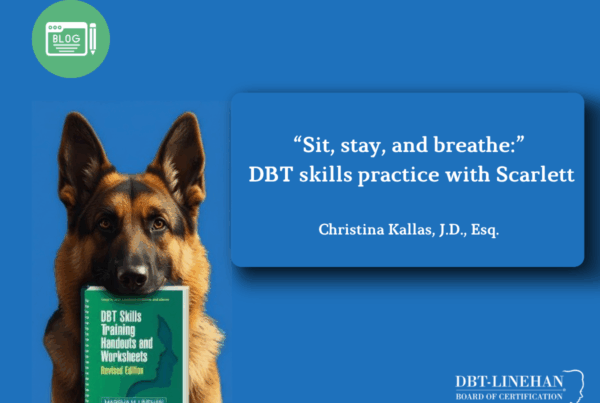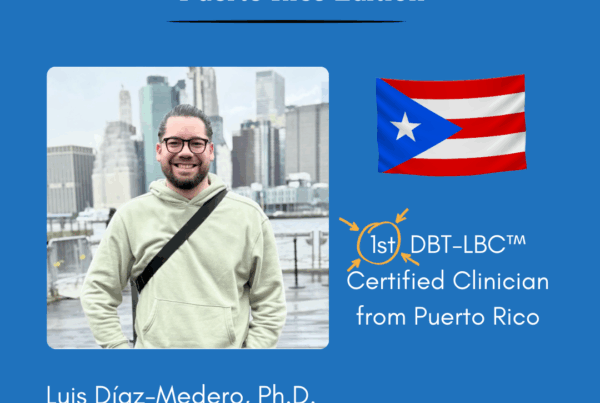The owner of Chicago DBT Institute (CDBTI), Dr. Kay Segal, started her DBT journey while being supervised by one of Marsha’s former students, Eunice Chen, PhD. She was fortunate enough to get to hang around some of the OG DBTers at ISITDBT meetings every year and recalls listening to Marsha speak about certification, her vision to grow the family tree of DBT, and her goal to inspire others to practice evidence-based treatment with fidelity in an effort to help people suffering with emotional dysregulation and self-destructive coping. The Clinical Director of CDBTI, Dr. Allison Mauro, met Kay at the Autumn in Chicago: Advanced Topics in DBT training during the fall of 2016. Kay was the only DBT-LBC Certified Clinician in the state of Illinois at the time. Allison was inspired by her and they immediately connected on their passion for DBT and adherence to the model. Allison joined the team at CDBTI soon after and started on her own path to clinician certification, which she completed in the summer of 2019.
The road to program certification began with a nudge from Joan Russo, who Kay had gotten to know as a fellow midwesterner over the years at ISITDBT. Kay’s small team of four clinicians rallied to gather documentation to support their adherence in individual sessions, skills group, phone coaching, and Team. The most exciting and rewarding part of preparing for the certification process and site review was the enthusiasm and eagerness of patients to help.
When it came time for the site review, Joan enlisted the help of Sarah Stelzner and Mandy Hyland. The certification process was still in its infancy, and CDBTI’s site review served as an opportunity to train future site reviewers. Following CDBTI’s certification, Sarah and Kay joined the DBT-LBC program certification workgroup and began volunteering to review other programs.
CDBTI was ecstatic to become the first DBT-LBC Certified program in the state of Illinois. In the Chicagoland area there are many programs that offer elements of DBT. We knew that becoming a certified program was necessary to ensure we were delivering comprehensive, adherent, and evidenced based outpatient DBT treatment to our patients and their families. The even greater joy came from how the process positively impacted our patients. One of the patients that Joan interviewed was abusing alcohol at the time. The patient distinctly recalls Joan asking her why she was not engaging in more skillful ways of decreasing her use. Today, the patient is sober and still comments, “If only Joan could see me now.” CDBTI’s patients really felt that they had a part in “moving DBT forward” and were so invested in the process and the treatment. Finally, we are beyond honored to have been a part of Sarah’s journey and dedication to DBT.
The CDBTI team has grown since our humble beginnings, and now has ten clinicians, hundreds of patients, and countless success stories of building a life worth living. We continue to pride ourselves on our fidelity to the treatment and are honored everyday to be part of such a wonderful DBT community!





